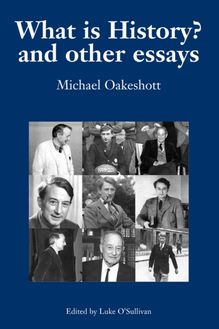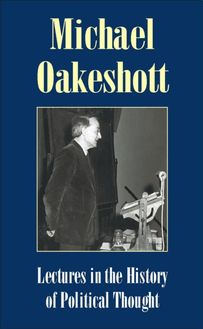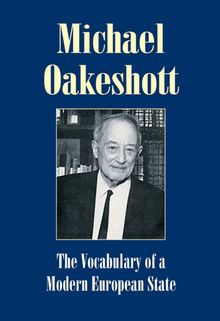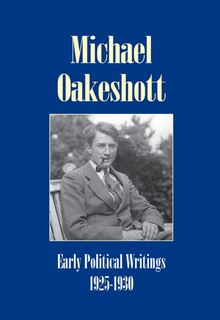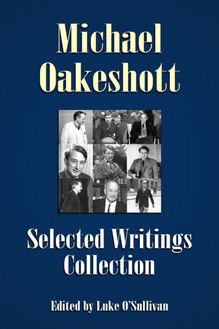-
 Univers
Univers
-
 Ebooks
Ebooks
-
 Livres audio
Livres audio
-
 Presse
Presse
-
 Podcasts
Podcasts
-
 BD
BD
-
 Documents
Documents
-
- Cours
- Révisions
- Ressources pédagogiques
- Sciences de l’éducation
- Manuels scolaires
- Langues
- Travaux de classe
- Annales de BEP
- Etudes supérieures
- Maternelle et primaire
- Fiches de lecture
- Orientation scolaire
- Méthodologie
- Corrigés de devoir
- Annales d’examens et concours
- Annales du bac
- Annales du brevet
- Rapports de stage
La lecture à portée de main
Vous pourrez modifier la taille du texte de cet ouvrage
Découvre YouScribe en t'inscrivant gratuitement
Je m'inscrisDécouvre YouScribe en t'inscrivant gratuitement
Je m'inscrisEn savoir plus
Vous pourrez modifier la taille du texte de cet ouvrage
En savoir plus

Description
Sujets
Informations
| Publié par | Andrews UK |
| Date de parution | 27 octobre 2011 |
| Nombre de lectures | 0 |
| EAN13 | 9781845403096 |
| Langue | English |
Informations légales : prix de location à la page 0,1124€. Cette information est donnée uniquement à titre indicatif conformément à la législation en vigueur.
Extrait
Title Page
THE VOCABULARY OF A MODERN EUROPEAN STATE
Michael Oakeshott
Edited by Luke O’Sullivan
Publisher Information
This collection copyright © Imprint Academic, 2008
The moral rights of the author have been asserted
No part of any contribution may be reproduced in any form without permission, except for the quotation of brief passages in criticism and discussion.
Originally published in the UK by Imprint Academic
PO Box 200, Exeter EX5 5YX, UK
Originally published in the USA by Imprint Academic
Philosophy Documentation Center
PO Box 7147, Charlottesville, VA 22906-7147, USA
Digital version converted and published in 2011 by
Andrews UK Limited
www.andrewsuk.com
Preface
As noted in the Preface to the previous volume, preparing Oakeshott’s published essays and reviews for this series of his Selected Writings posed problems not raised by the earlier volumes. Obtaining the rights to reproduce them involved negotiating with around twenty different parties, whereas for the first two volumes it was only necessary to obtain the permission of the British Library of Political and Economic Science (BLPES).
As editor I am obliged to all those who assisted with the effort to trace the copyright holders. In some cases - where, for example, a journal or magazine was now defunct, or a book had long been out of print - it was not immediately obvious who, if anyone, currently claimed the copyright, and indeed it sometimes proved impossible to find a current copyright holder. In such instances, it was assumed that the copyright had reverted to the BLPES as the holder of Oakeshott’s literary estate.
With respect to the items reprinted in this fourth volume, I am grateful to Julia Gardner of the Special Collections Research Center at the University of Chicago Library for her help with an unsuccessful search for the current copyright holder of Encounter magazine; to Jennifer Jones of Elsevier for confirming that rights to material from Chamber’s Encyclopedia had reverted to the BLPES; Anatol Shmelev, Project Archivist at the Hoover Institution, Stanford University, for help regarding Radio Free Europe; and to the British Library for their efforts in a similarly vain search for the copyright holder of material published in Time and Tide .
In the majority of cases, however, a copyright holder was found, and given the total absence of a budget for obtaining the rights to reprint the material included in these two volumes, it is gratifying to be able to record that in every case the owners of the rights were prepared either to accept a significantly reduced fee or in some cases even waive their fees altogether.
I am therefore very pleased to be able to thank the following for their willingness to accept less than their regular fee: Sophie Buchanan on behalf of the Spectator ; Kahren Ehrmann of Sage Publications (USA) for granting permission to reproduce material from Political Theory ; Mathew Lambert of Sage Publications (UK) for granting permission to reproduce material from the European Studies Review (now the European History Quarterly ); Toby Lichtig on behalf of the Times Literary Supplement ; Rosemary Parkhill of New Society for the rights to material from New Statesman ; and Eve Thompson of Guardian News and Media for the rights to material from the Observer .
For generously agreeing to waive their fees altogether, grateful thanks are owed to: Richard Bentley on behalf of Telegraph Newspapers for permission to use material from the Daily Telegraph and the Sunday Telegraph ; Professor David Boucher, editor of Collingwood and British Idealism Studies , for permission to reprint ‘The Concept of Government in Modern Europe’, and to Charles Kelley and Francisco Lopez for consenting to the use of their translation; Zoe Ellams on behalf of Blackwell for permission to use material from Philosophical Quarterly , Government and Opposition , Political Studies , and Public Administration ; Craig Rimmer on behalf of the Bow Group for permission to use material from Crossbow ; and the London School of Economics, for permission to use material originally published in Clare Market Review .
Once permission to use the copyrighted material had been obtained, of course, it was necessary to raise the funds to pay for it. I would like to restate my gratitude to the British Academy for the award of a Small Research Grant which was sufficient to cover the costs involved in purchasing the reproduction rights for both volumes. This assistance was all the more welcome as the editor was without an academic affiliation for a significant portion of the period during which this volume and its companion were in preparation. Thanks are also due to Professors Robert Grant and Terry Nardin, who lent their support to the grant application. Professor Nardin deserves additional thanks for commenting on a draft of the Introduction.
Imprint Academic, publishers of the Selected Writings , continue to playa vital role in the success of the series; their ongoing support remains a major contribution to Oakeshott studies. The Political Science Department of the National University of Singapore provided a congenial environment in which to complete the volume.
Finally, I would like to thank my parents once more for their unfailing support and encouragement. My wife Olga again assisted with the editorial drudgery of preparing a volume for the press, and she deserves the thanks of Oakeshott scholars everywhere for her careful proofreading and checking of the text. Of course, responsibility for any errors it contains rests entirely with the editor.
Luke O’Sullivan
Singapore, 2008
Introduction
Introduction
This volume collects together all of the essays and reviews Oakeshott published between 1952 and 1988 that have not previously been republished elsewhere. [1] Together with its companion for 1926-1951, it makes the vast majority of these writings easily accessible in print for the first time. The rationale for republishing them given in the Introduction to the previous volume need only be restated briefly here.
Obviously, it is far more convenient to consult all these pieces between just two sets of covers. They also supply valuable bridges between the major works that Oakeshott published during his lifetime - in particular, in the case of this volume, between Rationalism in Politics (1962) and On Human Conduct (1975). The essays and reviews place Oakeshott in dialogue with his contemporaries in a way that his books seem almost to have been deliberately designed to avoid. Moreover, they constitute a distinctive record of developments in the humanities and social sciences over a good portion of the twentieth century. Finally, they have remained entertaining to read even though some of the books reviewed have been forgotten.
Such collections, however, are not often read through in sequence, so once more it is appropriate in this introductory essay to offer an overview of a collection of writings that were never designed to form a whole. Oakeshott’s review of E.M. Forster’s essays remarked that they were worth republishing ‘because the pieces re-enforce one another in a manner which might escape notice had they not been collected together’, and the reader will hopefully agree that this is also true of the writings collected here. [2]
The majority of the essays and reviews in this volume belong to the 1950s and 1960s. In the 1970s, Oakeshott’s reviewing slowed considerably, probably because in retirement he was concentrating on finishing On Human Conduct and On History . In the 1980s, he published just three reviews, though he remained intellectually active - On History did not appear until 1983. His very last review is dated 1988, just two years before his death.
This volume contains fewer items than its predecessor, but is only slightly shorter as it contains several lengthy essays. Once again, it is named after its longest piece. ‘The Vocabulary of a Modern European State’ (1976) constitutes Oakeshott’s most thorough investigation of a theme that runs throughout this volume, the fundamental ambiguity of European political discourse. It is an essential companion piece to the search in On Human Conduct for a vocabulary of ‘civil association’ that avoided the use of words such as ‘democracy’, ‘left’, ‘right’, ‘socialist’, ‘conservative’, ‘liberal’, and so on.
Oakeshott generally eschewed all of these terms in his own philosophical works, and the reasons why he found them so ambiguous are discussed below. But in these shorter reviews, he was more prepared to acknowledge such conventional labels. If one is curious about what he made of contemporary American Conservatism, the New Right in Britain, or French Marxism, this is the place to look. But these pieces are also fertile sources for his views on the rhetorical character of political speech, on historiography, on political theory, and hopefully much else besides.
I: Religion
After WW2, Oakeshott ceased reviewing works on religion and theology altogether. The explanation seems biographical; a convinced Christian in his early twenties, he gradually became disillusioned in the 1930s, and never wrote exclusively on theological matters again. Nevertheless, his early interest in religion left a lasting impression. [3] He was no less sensitive than Carl Schmitt to ‘political theology’, or the roots of contemporary European political ideas in earlier Christian beliefs.
While none of these reviews dealt specifically with religion, they contain a number of significant references to it. For example, Oakeshott more than once referred to modernity in general and to the Enlightenment in particular as ‘Pelagian’. [4] The analogy is between the early fifth-century claims of Pelagius and modern ideas of hum
-
 Univers
Univers
-
 Ebooks
Ebooks
-
 Livres audio
Livres audio
-
 Presse
Presse
-
 Podcasts
Podcasts
-
 BD
BD
-
 Documents
Documents
-
Jeunesse
-
Littérature
-
Ressources professionnelles
-
Santé et bien-être
-
Savoirs
-
Education
-
Loisirs et hobbies
-
Art, musique et cinéma
-
Actualité et débat de société
-
Jeunesse
-
Littérature
-
Ressources professionnelles
-
Santé et bien-être
-
Savoirs
-
Education
-
Loisirs et hobbies
-
Art, musique et cinéma
-
Actualité et débat de société
-
Actualités
-
Lifestyle
-
Presse jeunesse
-
Presse professionnelle
-
Pratique
-
Presse sportive
-
Presse internationale
-
Culture & Médias
-
Action et Aventures
-
Science-fiction et Fantasy
-
Société
-
Jeunesse
-
Littérature
-
Ressources professionnelles
-
Santé et bien-être
-
Savoirs
-
Education
-
Loisirs et hobbies
-
Art, musique et cinéma
-
Actualité et débat de société
- Cours
- Révisions
- Ressources pédagogiques
- Sciences de l’éducation
- Manuels scolaires
- Langues
- Travaux de classe
- Annales de BEP
- Etudes supérieures
- Maternelle et primaire
- Fiches de lecture
- Orientation scolaire
- Méthodologie
- Corrigés de devoir
- Annales d’examens et concours
- Annales du bac
- Annales du brevet
- Rapports de stage

